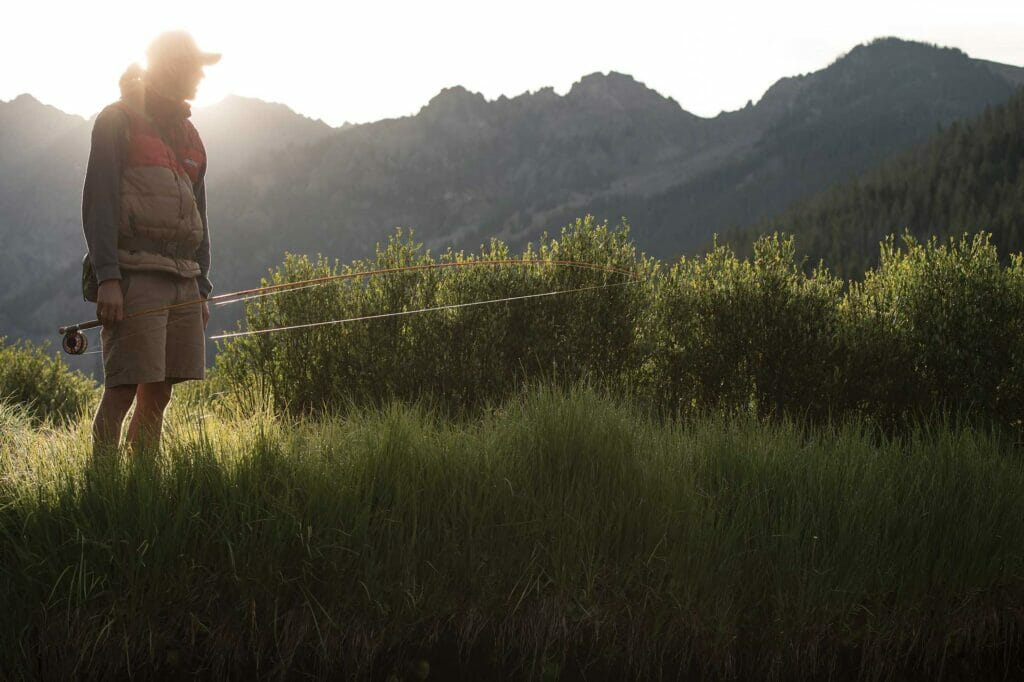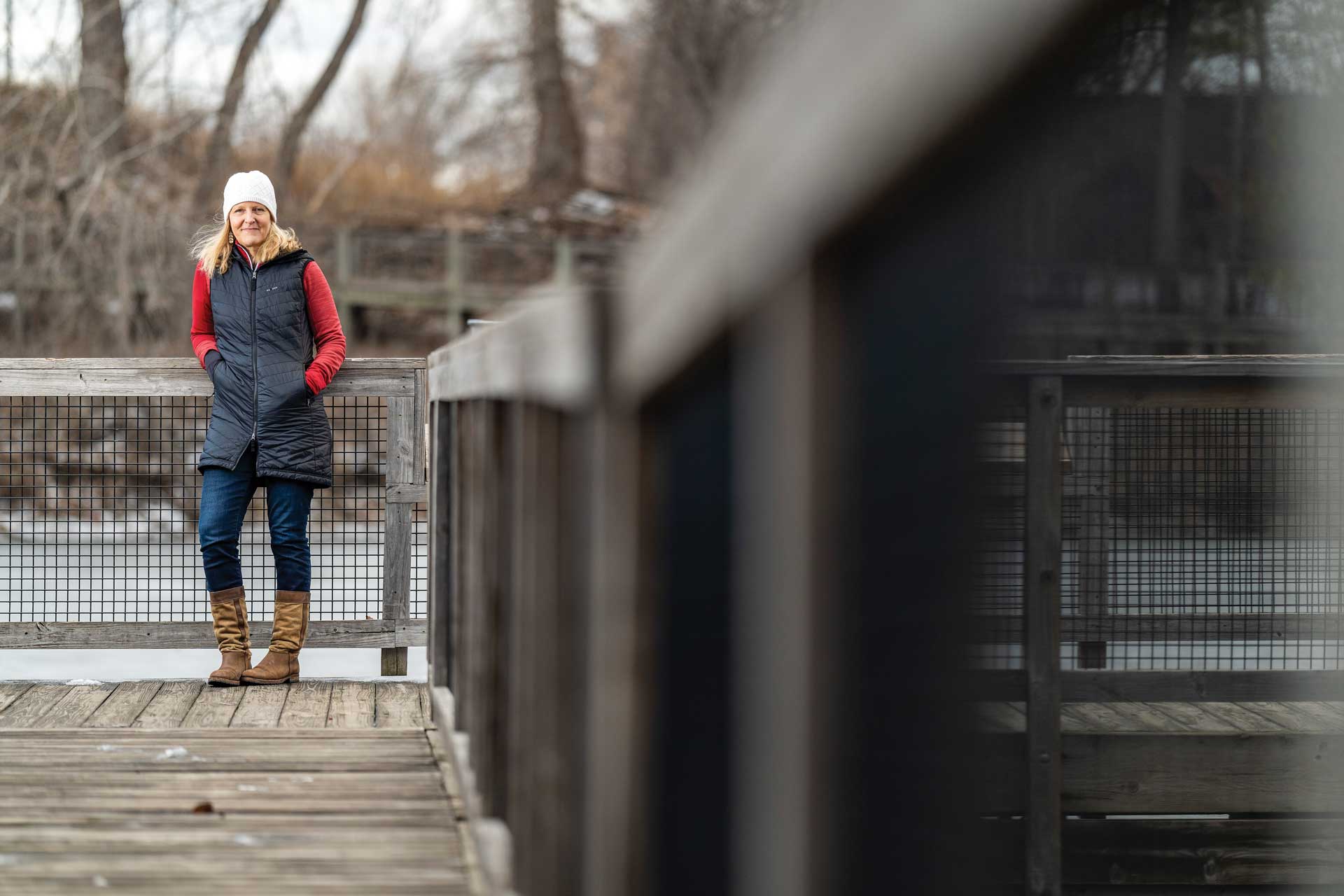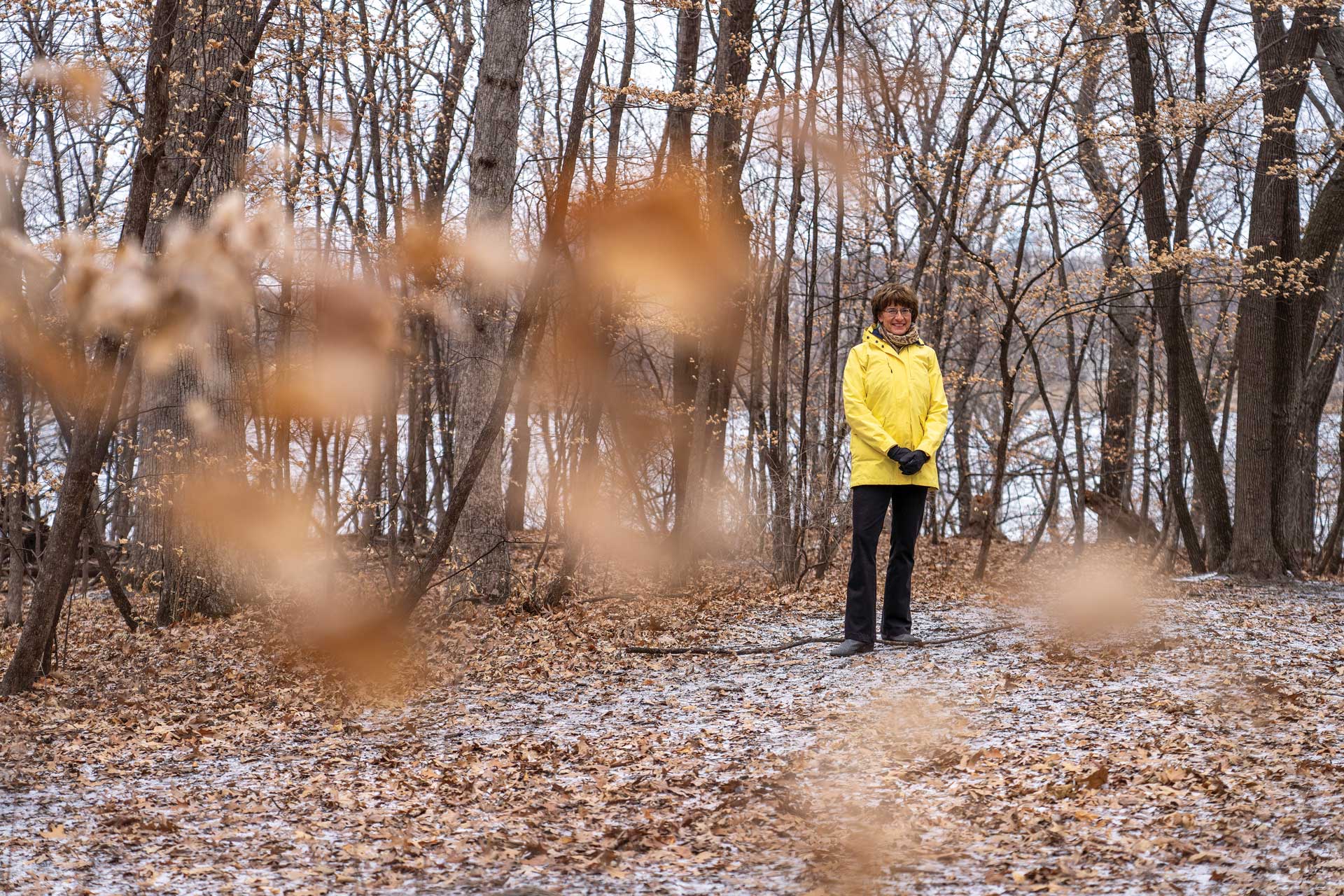WHAT ARE YOU
REALLY
FISHING FOR?
By Kirk Deeter

I’m still not sure some of my friends, colleagues and even family members begin to understand why I’m so enamored with fly fishing.
“Oh, you went fishing today, did you have a good time?” they ask.
“Yep,” I answer. “It rained most of the day. There were bugs all over the place.”
“Huh… how many fish did you catch?”
“Dunno. Four or five, I think.”
“Any big ones?”
“Nothing that big. (I’ll hold out my hands a foot or so apart.) But they ate dry flies.”
“Did you keep any for dinner?”
“Nah, I don’t like to eat trout very much.”
They politely won’t ask how much money I’ve spent over the years (I’d say “invested,” others could reasonably argue “wasted”) on my boats, boots and waders, the fly rods, reels, lines and countless flies I’ve accumulated (and lost).
Most of them don’t know that this fascination has led me to five continents and four oceans, all to chase fish with a fancy stick and string.
“Many go fishing all
Henry David Thoreau
their lives without
knowing that it is not
the fish they are after.”
Some of them find it oddly amusing that I’ve somehow made a career out of writing about all this. I used to joke to my late father-in-law, who taught me to fly fish, that I might have been a neurosurgeon, or attorney arguing cases before the Supreme Court, if he hadn’t thrown me off track by getting me all fired up about this fly-fishing stuff while I was dating his daughter. He’d just smile. He got it.
You see… most people in the world probably think that the notion of standing knee-deep in waterproof pants in a river as it rains all day, with bugs flying all around you, so you can cast a hook adorned with fur and feathers at a creature no longer than your forearm, with absolutely no intention of eating it might be a sign of faltering mental health.
But some of us have found exactly the opposite to be true.
Some of us know that fly fishing can be to your mental health what jogging or biking is to your cardio health.

“For many companies, a wellness program is about how many pounds a staff can shed, or how many miles they can walk, which is great. But the truth is you can’t really work toward whole person wellbeing without addressing mental wellbeing.”
—Kate Jackson, Wellbeing Coach
Mental health as a topic is just now ascending to the prominence it deserves. Thank you, Simone Biles, Naomi Osaka, Michael Phelps and other prominent public figures. This couldn’t be happening at a more relevant time.
The COVID-19 pandemic has forever changed the world. The loss of life was tragic. The ripple effect in the mental health context has been immense.
When the shopping malls closed, the youth baseball leagues ended, the movie theaters went dark and most other public “gatherings” got the kibosh, what happened?
People found water. The Recreational Boating and Fishing Foundation estimates 17 million of them, in fact. And what did a good percentage of these people—many young families—do?
They went fishing.
Because fishing heals the mind. And guess what? Over 90 percent of those people who found water have indicated a strong desire that even as things return to some semblance of “normal,” they want to stay connected to the water.
The link between being on water and, in a larger sense, being in nature and positive mental health, is not new. Many years ago, Richard Louv explained how “Nature Deficit Disorder” was a serious threat to the development of children. Studies have shown how hospital patients in rooms facing trees and sunlight recovered faster than those in rooms without. We know through other studies that the mere sounds of nature can actually expedite healing. There’s a “ParkRx” program to prescribe access to parks for people and physicians in Canada now regularly prescribe national park passes to recovering patients as therapy.
As Jody Martin (Traver Award winner and TROUT contributor, see his piece on page 60) pointed out in The American Fly Fisher (Journal of the American Museum of Fly Fishing):
“For a surprisingly wide array of human afflictions, fly fishing has been shown to help. Organizations use it to help mentor at-risk youths, relieve physical and emotional trauma, counter depression, help fight cancers, ease the agony of drug and alcohol addiction and heal our wounded veterans. The healing is not just anecdotal. The medical community is aware of the value of fly fishing as a form of therapy and, at least as concerns cancer recovery, recently has begun to recommend involvement and participation in fly-fishing retreats.”
Martin also penned an earlier article in TROUT (“It Also Heals” Summer 2019) that showed TU has been making this case for years. TU’s own Service Program was carefully crafted to help facilitate this very important modality of healing. And other organizations have been proving the case that fishing heals for years as well.
Project Healing Waters was specifically created to help military veterans deal with physical injuries, Post Traumatic Stress Disorder and other issues, simply by making the connection with fly water.
Casting For Recovery, Reel Recovery and others help people confront life-changing diagnoses and forge forth via connecting with rivers and fly fishing. The Mayfly Project helps mentor children in the Foster Care system, through fishing and water. The list goes on…
I cannot tell you how many times I have heard from nurses and doctors on the front lines of COVID-19 who have expressed how much “just a few hours on the water” has meant in these times. I cannot tell you how many battle-hardened soldiers I have fished with, who smile like kids when a fish eats the fly.
Even some companies that are immersed in fishing have found that… well, fishing… is vital to morale and mental health among their employees.
In the pits of the pandemic, Simms Fishing Products engaged wellbeing coach Kate Jackson (ensowellbeing.com) to help employees cope.
“For many companies, a wellness program is about how many pounds a staff can shed, or how many miles they can walk, which is great,” explained Jackson. “But the truth is you can’t really work toward whole person wellbeing without addressing mental wellbeing. Simms took it to that next level, and also regularly encouraged staff to get out and fish, and it showed in terms of employee resilience and productivity.”

“I cannot think of anywhere better to be invited into a state of mindfulness than standing on a stream bank, because it puts you right there in the moment.”
—Karen Lawson, MD
Karen Lawson, M.D., Asst. Professor of Family Medicine and Community Health at the University of Minnesota, (and herself an avid angler) explained how the COVID-19 pandemic has heightened the need for people to connect with nature.
“COVID locked us into an isolated existence, where we were dependent on artificial lights, and social media, Zoom calls, cell phones and so on,” she described. “So it becomes more important than ever to consciously disconnect from manipulated sources (of energy). Anything that helps us remove ourselves from all of that—fishing, camping, whatever—helps put us in a present moment. Many of us would not have sustained through the pandemic without nature time.
“This is all part of a ‘mindfulness movement’ that’s been evolving for 30 years. You see this with the popularity of yoga, for example. But I cannot think of anywhere better to be invited into a state of mindfulness than standing on a stream bank, because it puts you right there in the moment. The river realty is a great place to strengthen ‘mental muscle.’”
Is it possible to strengthen mental muscle through any number of outdoor pursuits, like lawn bowling, unicycling, or body surfing? Of course. But perhaps no outdoor pursuit more literally connects people to nature—specifically via the line connected to a fish—than angling. And angling connects a community of people as well.
So please… if you aren’t into angling yourself, understand that for millions of families (and the number is growing) fishing is never really “just fishing.”
And for those of us who look forward to spending a day standing in a river… perhaps as it rains… wishing for bugs to swarm all around… hoping just to pull on a fish for a bit and then let it go… take heart! Heck, we might just be onto something.


Comments